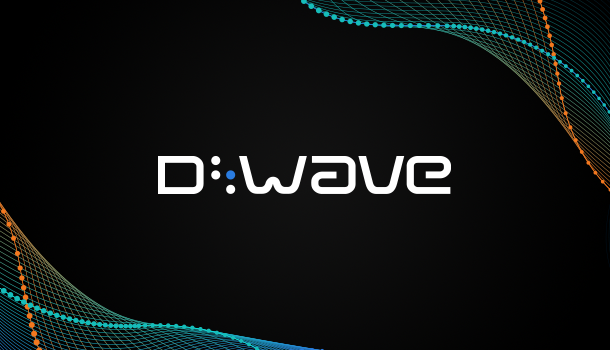Including support for quantum-enhanced and energy efficient AI model training as well as integrating AI and optimization to address important customer use cases
PALO ALTO, Calif. – July 29, 2024 – D-Wave Quantum Inc. (NYSE: QBTS) (“D-Wave” or the “Company”), a leader in quantum computing systems, software, and services and the world’s first commercial supplier of quantum computers, today announced it is strengthening the connection between quantum optimization, artificial intelligence (AI), and machine learning (ML), by extending its product development roadmap with enhancements to the Leap™ quantum cloud service that will bring new Quantum AI solutions to market. The roadmap is intended to help customers address a variety of AI/ML workloads including pre-training optimization, more accurate and efficient model training, and opening new AI business use cases that require the integration of AI and business optimization, such as quantum supply chain optimization to support AI-predicted product demand requirements.
In response to growing demand from its customers, D-Wave’s Quantum AI development initiative comes at a time when the broader AI industry is confronting a computing crunch. The amount of compute and the associated energy costs needed to satisfy a growing set of use cases is rapidly escalating. D-Wave’s Quantum AI solutions aim to leverage annealing quantum computing’s unique capability in solving optimization problems to help customers discover better, faster and more energy efficient AI and ML workloads.
D-Wave is announcing a new Quantum AI extension to its product development roadmap, focused on three key development areas:
- Quantum Distributions for Generative AI: Development in this area is focused on designing novel, modern generative AI architectures that directly use quantum processing unit (QPU) samples from quantum distributions that cannot be generated classically. Initially focused on molecular discovery use cases, we believe there is immense potential in harnessing quantum distributions for a broad array of generative AI applications.
- Restricted Boltzmann Machine (RBM) Architectures: A growing set of customers are exploring new RBM architectures that directly leverage D-Wave’s QPU for applications ranging from cybersecurity to drug discovery and high-energy physics data analysis, which could potentially lead to reduced energy consumption in training and running AI models. D-Wave plans to ensure that the quantum and hybrid-quantum solvers available in the Leap cloud service support these emerging applications.
- GPU Integration with the Leap Quantum Cloud Service: D-Wave is augmenting the Leap quantum cloud service by incorporating additional graphics processing unit (GPU) resources for the training and support of AI models alongside optimization workloads. In addition, efforts are underway to further reduce latency between QPUs and classical computing resources, a critical step in enabling hybrid-quantum technology for AI/ML.
Specific customer use cases related to D-Wave’s Quantum AI solutions include:
- As a pioneering example of improving biological data analysis, researchers in Julich, Germany, used D-Wave’s quantum technology to develop a machine learning tool that predicts protein-DNA binding with greater accuracy than traditional methods. The team integrated quantum computing with support vector machines to achieve improved results in various metrics, significantly enhancing classification performance.
- TRIUMF, Canada's particle accelerator center, and its partner institutions, are showing significant speed-upsof D-Wave’s QPU over classical approaches for simulating high-energy particle-calorimeter interactions – potentially leading to major efficiencies where the AI model is used to create synthetic data.
- Honda Innovation Lab and Tohoku University developed a method to fine-tune D-Wave’s quantum computers to generate highly accurate samples for training RBMs. This approach yielded better results than traditional algorithms and significant improvements in model performance.
“We’re seeing early evidence that annealing quantum computing could play a key role in helping AI/ML with more efficient model training, reduced energy consumption and faster time-to-solution,” said Dr. Alan Baratz, CEO of D-Wave. “With results demonstrating our annealing quantum computer’s ability to outperform classical techniques, coupled with rapidly increasing demand from our customers for Quantum AI solutions that integrate with their business optimization requirements, we believe the impact of D-Wave’s Quantum AI solutions could be transformative, bringing a powerful new set of new computing tools for generative AI.”
About D-Wave Quantum Inc.
D-Wave is a leader in the development and delivery of quantum computing systems, software, and services, and is the world’s first commercial supplier of quantum computers—and the only company building both annealing quantum computers and gate-model quantum computers. Our mission is to unlock the power of quantum computing today to benefit business and society.
We do this by delivering customer value with practical quantum applications for problems as diverse as logistics, artificial intelligence, materials sciences, drug discovery, scheduling, cybersecurity, fault detection, and financial modeling. D-Wave’s technology has been used by some of the world’s most advanced organizations including Mastercard, Deloitte, Davidson Technologies, ArcelorMittal, Siemens Healthineers, Unisys, NEC Corporation, Pattison Food Group Ltd., DENSO, Lockheed Martin, Forschungszentrum Jülich, University of Southern California, and Los Alamos National Laboratory.
Forward-Looking Statements
Certain statements in this press release are forward-looking, as defined in the Private Securities Litigation Reform Act of 1995. These statements involve risks, uncertainties, and other factors that may cause actual results to differ materially from the information expressed or implied by these forward-looking statements and may not be indicative of future results. These forward-looking statements are subject to a number of risks and uncertainties, including, among others, various factors beyond management’s control, including the risks set forth under the heading “Risk Factors” discussed under the caption “Item 1A. Risk Factors” in Part I of our most recent Annual Report on Form 10-K or any updates discussed under the caption “Item 1A. Risk Factors” in Part II of our Quarterly Reports on Form 10-Q and in our other filings with the SEC. Undue reliance should not be placed on the forward-looking statements in this press release in making an investment decision, which are based on information available to us on the date hereof. We undertake no duty to update this information unless required by law.
Media Contact:
D-Wave
Alex Daigle
###
